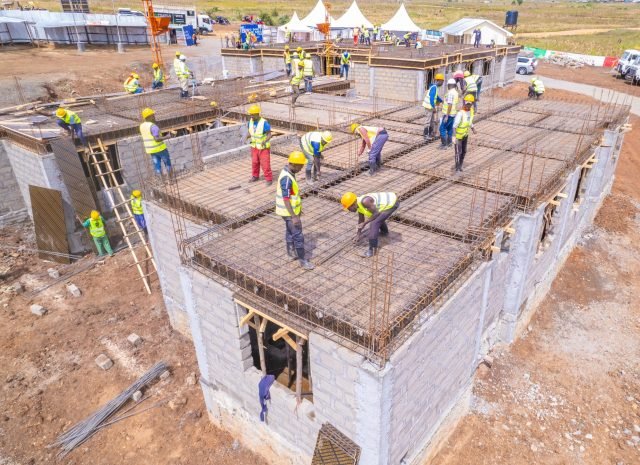Kenya’s real estate market posted significant growth despite prevailing macro-economic challenges witnessed in the better part of last year.
According to Knight Frank Half Year 2022 Market Update significant growth was reported in residential, retail, office and industrial markets in six months of the year to December 2023.
The real estate agency says while prime office monthly rent in Nairobi remained stable at $1.2 per sq. ft, office occupancy rates which have been historically affected by oversupply and economic challenges increased from 71.5pc in the first half of last year to 776.pc in H2 2023.
“Despite unprecedented challenges, the Kenya real estate market has demonstrated durability and adaptability, positioning itself for continued growth,” said Mark Dunford, Knight Frank Kenya Chief Executive Officer.
The rise in occupancy rates has been attributed to the absorption of space in recently completed A-grade developments even as B-grade office developments continued to face challenges.
Knight Frank says higher uptake of office spaces was driven by flexible office operators such as Regus, Spaces, and Ikigai who expanded their footprint in market with new branches.
Despite economic challenges, the firm noted a 2.45pc improvement in the residential prime sales market last year.
However, longer durations for sales completions were observed, influenced by regulation challenges, economic conditions, inflation, and buyer-seller valuation disparities.
The prime residential rental market continued its upward trend and registered an annual appreciation of 5.85pc to the year ended 2023.
The hospitality sector whose recovery nears pre-Covid-19 levels saw occupancy rates rise to 57pc in third quarter of last year, a 32pc increase from a similar period in 2022.
This was on the backdrop of a 29pc increase in arrivals in ten months of last year to October.
“Nevertheless, hotel management challenges persist, leading to established operators taking over management roles in new establishments. Despite challenges, the sector expanded with new hotel openings and investments,” the firm stated in the outlook.
The firm says the industrial sector also gained momentum with investments in industrial parks, Special Economic Zones (SEZs) and Export Processing Zones (EPZs).
“Kenya’s Vision 2030 aims for industrialisation, with one of the government interventions being the introduction of County Aggregation and Industrial Parks (CAIPs) to promote agro-manufacturing. However, lack of proper infrastructure and a tough business environment continues to be a challenge,” added Chares Macharia, Senior Researcher at Knight Frank Kenya.
Investments in alternative sectors have surged in the last five years, with private equity firms leading the market. Momentum in healthcare and affordable housing initiatives was observed.
Government interventions drove efforts in quality healthcare provision, while the affordable housing sector faced implementation challenges.
In the Half Year under review, the shilling experienced historic lows against major currencies, losing approximately 9.02pc of its purchasing power since June 2023.
On the other hand, the real estate market growth momentum was also hurt by the tightening of the monetary policy by the Central Bank of Kenya (CBK) leading to higher cost of borrowing and slowdown in investments in the capital markets.
Market challenges in the Real Estate Investment Trusts (REITs) already had Ilam Fahari I-REIT delist from the Nairobi Securities Exchange main segment.







